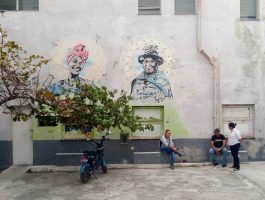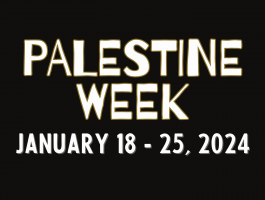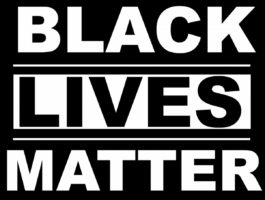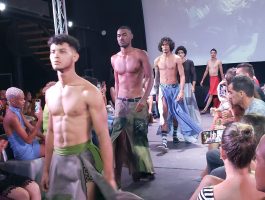In “The Cooking Gene,” culinary historian Michael Twitty sends his reader on a tantalizing journey starting at the kitchen table, leading his readers all the way to the cotton fields of Virginia and the plantations of North Carolina. He captures his audience by centralizing the topic of southern cuisine which depicts to the reader a splendidly vivid image of the traditional origins of a style of cooking rooted in African American culture. Remarkably, Twitty finds a brilliant fluidity that perfectly weaves cooking methods of the Old South to historical research and and customs of the antiquated past, in relationship to gender, race, religion, and politics.
I appreciate Twitty’s efforts and findings on what sometimes feels like the forgotten past. From slave ships to slave trade, from plantations to house maids, and from systemic marginalization of people of color, particularly those of African descent, it is easy to describe African American History as a never-ending crisis of disenfranchisement and slaughtering of natural born rights, but this isn’t the approach that Twitty takes to describe the rich history of African Americans.
Twitty takes the high road. He uses colorful narration of foods and his personal journeys within the Old South that forages a spiritual connection between history and the present. In chapter 17 of his book Twitty stands in a cotton field and states ,“ I wish you could see the cotton fields. The bolls are just opening. I cannot compare their appearance to anything but fields of white roses.” The spiritual soul of the South is romanticized and brought to life by prolific food recipes and the beautiful renditions of customary practices like singing hymns while cooking. It isn’t often that African American history is portrayed in this fashion. Twitty recognizes the beauty of his past despite the circumstances. He sees strength and quality of the efforts put forth by those who came before him and also recognizes that his ancestry lacks singularity. There is an intersectionality amongst ethnicity, being that Twitty’s ancestors are African, Native American, and European.
Twitty also identifies himself as a gay African American man, and I find that this book speaks to the spiritual and personal self-discovery that took place in his life upon discovering his historical roots. We find that history has so many overlapping tendencies and for this fact, history is beautiful and must be appreciated. This book is for those seeking to master their down home southern cooking and desiring a detailed, intimate portrayal of Southern American history from a widespread, understanding, and simply captivating perspective.
This review was provided courtesy of Busboys and Poets Bookseller Carlantha Roberts. Be sure to catch Michael Twitty at our upcoming event on December 10th at 5th and K.





